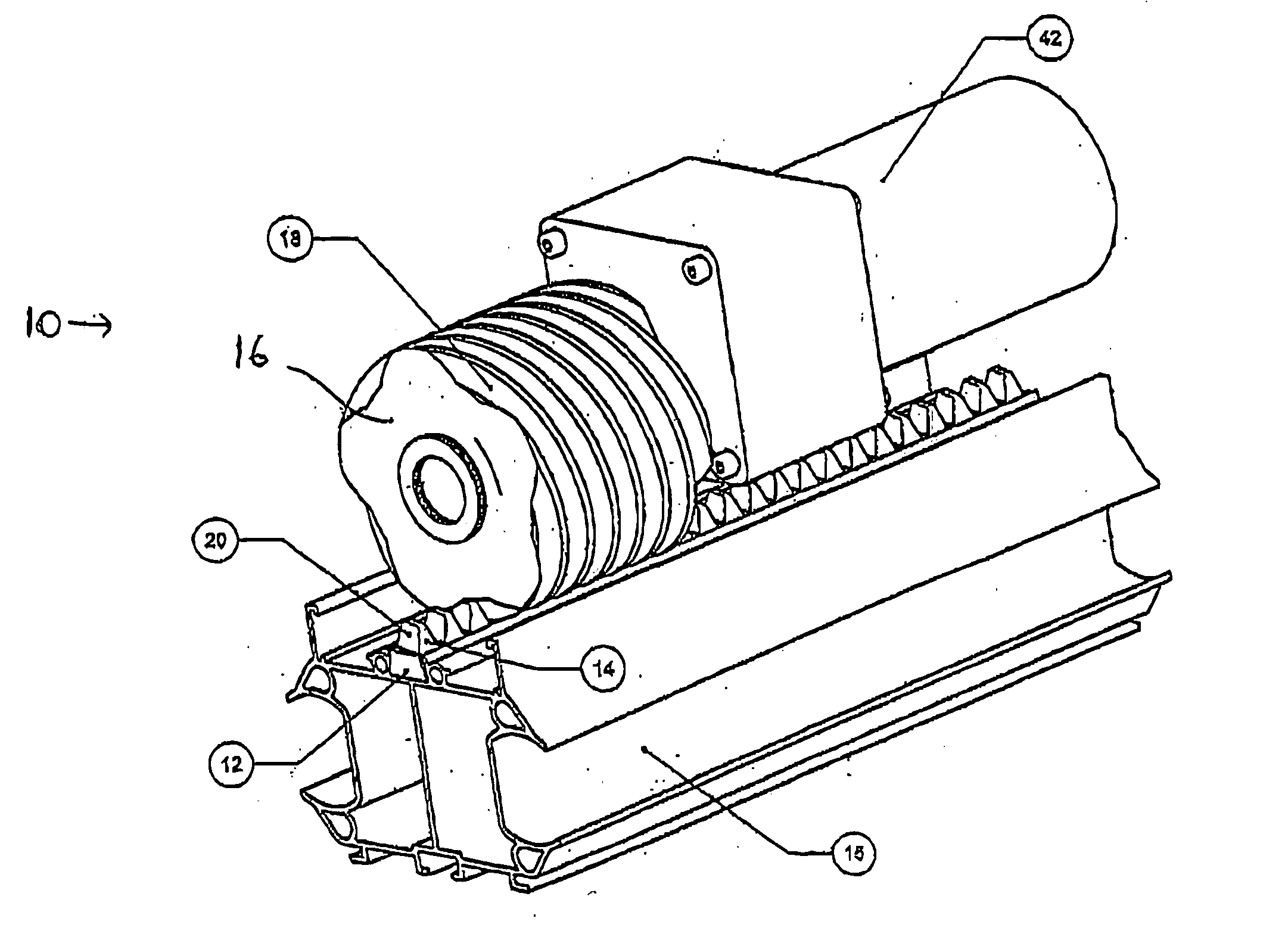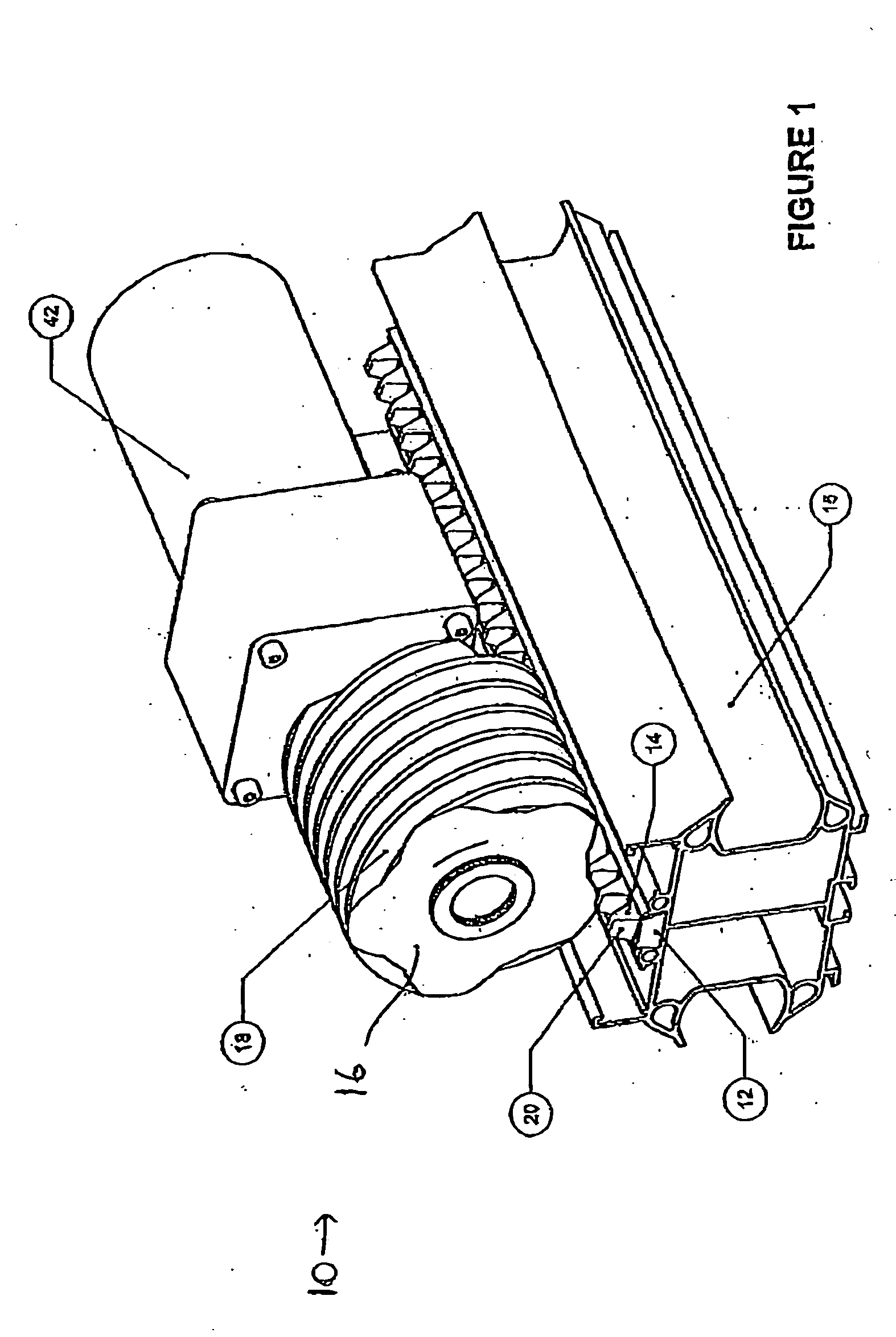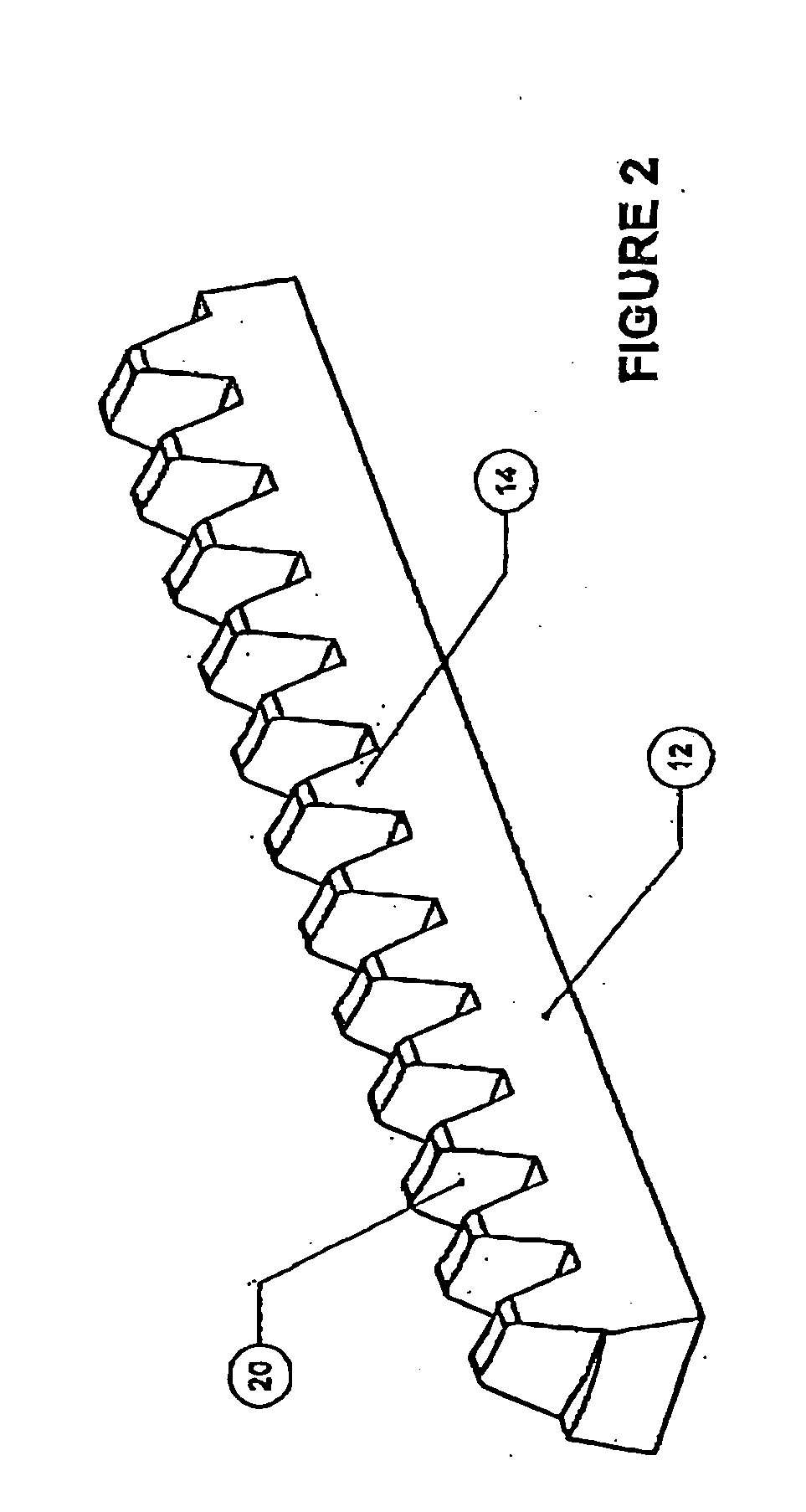Lift drive device
a technology of lifting drive and gearbox, which is applied in the direction of friction gearing, toothed gearing, gearing, etc., can solve the problems of heavy metal components, awkward installation, and heavy weight of metal components, and achieves simple and inexpensive manufacturing, improved drive, and strong and reliable
- Summary
- Abstract
- Description
- Claims
- Application Information
AI Technical Summary
Benefits of technology
Problems solved by technology
Method used
Image
Examples
Embodiment Construction
FIG. 1 shows a lift drive device 10 according to the present invention. The lift drive device 10 includes three main elements, namely a track 12 having teeth 14, incorporated into a rail 15, a drive element 16 having spiral drive threads 18 and a motor 42. In this sense the row of teeth form a track, and the track of teeth form part of the rail and are integrated therewith. In the present specification the term lift drive is used, although the drive of the present invention can both lift and lower. The drive of the present invention is most suitable for lifting along an inclined plane, although vertical lifts are also comprehended. As explained in more detail below, by reversing the direction of rotation of the drive element, the present invention can be used to move in both directions along a rail 15 having a track 12.
FIG. 2 shows the teeth 14 of the track 12 in greater detail. Most preferably the teeth are integrally formed with the track and are made from a moulded plastic. Many ...
PUM
 Login to View More
Login to View More Abstract
Description
Claims
Application Information
 Login to View More
Login to View More - R&D
- Intellectual Property
- Life Sciences
- Materials
- Tech Scout
- Unparalleled Data Quality
- Higher Quality Content
- 60% Fewer Hallucinations
Browse by: Latest US Patents, China's latest patents, Technical Efficacy Thesaurus, Application Domain, Technology Topic, Popular Technical Reports.
© 2025 PatSnap. All rights reserved.Legal|Privacy policy|Modern Slavery Act Transparency Statement|Sitemap|About US| Contact US: help@patsnap.com



